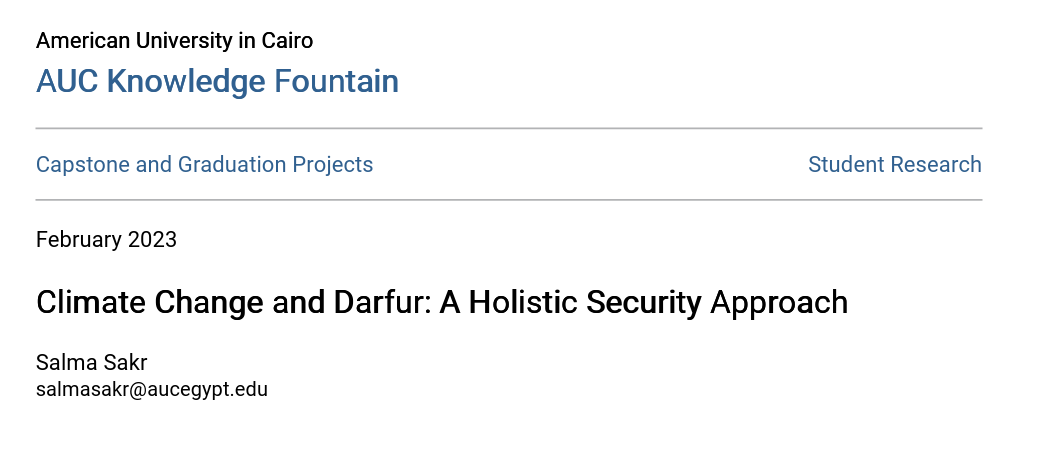
Climate change is a non-traditional security issue that has evolved into an existential global security threat through its transnational nature. It has direct human security implications that through time turns into indirect traditional security ramifications, which results in higher rates of intrastate conflicts along with regional spillover impacts that destabilizes the geopolitical landscape. Through a comparison of the contexts in Darfur in 1983 and 2003 along with the repercussions that Darfurians face nowadays, this thesis argues that climate change, as a threat multiplier, is the main driver of armed conflicts in Darfur through inter-communal competition over the scarcity of resources that led to food insecurity, health decline, livelihood deterioration, mass displacement, and eventually violent conflict. Compounded by a lack of national development policies, inadequate practices of local governance, and the failure of the applied conflict resolution mechanisms, a vicious cycle that begins with climatic impacts, progresses via conflicts, and culminates in internal and regional destabilization, was created only to repeat itself through the confluence of climate change and armed conflicts. As the root cause of many conflicts nowadays, climate change needs to be addressed through a holistic interdisciplinary security approach that takes into account national security and human security implications, development and good governance policies, as well as risk management practices while integrating an innovative principle entitled ‘the Responsibility to Prepare, Prevent, and Protect (R2PPP)’.
This thesis was originally published by the American University in Cairo.